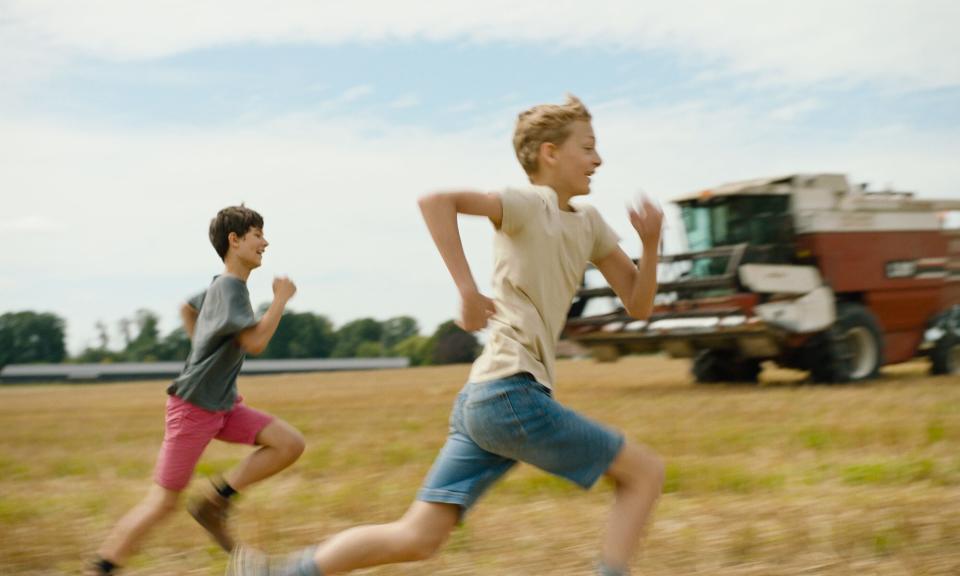Close review: When boys grow apart
One of the enduring mysteries of movies is how difficult it seems to depict childhood on screen with any real depth or feeling. There's something evanescent, maybe, about the act of even trying, so instead we get archetypes: adorable moppets; juvenile delinquents; precocious, eye-rolling tweens.
That's what makes a drama like Lukas Dhont's Close — now Belgium's newly-minted Oscar nominee for Best International Feature — feel both rare and precious, a film that captures the hothouse intimacy of adolescent friendship with such exquisite insight and specificity that it often feels less like a movie than a memory palace.

A24
Which is not to say that there isn't a relatively straightforward narrative: Léo (Eden Dambrine) and Rémi (Gustav De Waele) are two ordinary (if exceptionally lovely) 13-year-old boys living somewhere in the Flemish countryside, still suspended in the magic hour between tender youth and teendom. Their respective parents are happy to watch them tumble like puppies between their two nearby houses, playing and roughhousing and doing the rowdy, impenetrable things kids do.
The boys are inseparable and unselfconsciously physical with one another — sleeping curled together in a single bed like koala bears, sprawled out lazily in the grass with their limbs intertwined — until the new school year suddenly reveals how their peers see them. When more than one classmate insists, teasingly, that they must be a couple, Léo is taken aback; what's so strange about platonic affection between best friends?
Anyone who has ever entered the hellmouth of junior high has some sense of what comes next: the insecurities and desperation to fit in, or at least not stand out; the casual cruelties that children are capable ofl and the social Darwinism that drives even the happiest kid to act out in ways that feel foreign to themselves. The consequences of Léo's subsequent withdrawal, and Rémi's wounded bewilderment, shouldn't be much more than a glitch, a natural messy byproduct of shifting moods and puberty. Instead, it leads to something devastating, and the movie becomes a visceral, heart-wrecking meditation on the fallout of one momentary choice.
A lot of that impact is owed to Dhont's impeccable casting, both of the boys and particularly Remi's on-screen mother (The Missing's Émilie Dequenne) — and his dream-like visual style too, which makes ethereal use of his native country's flower fields and slanted light. Close, which took the Grand Prix at Cannes last year, is the 31-year-old director's second feature to win a major prize there, after his 2018 debut Girl, about a trans ballerina, took both the Camera d'Or for best first feature and the independent Queer Palm. Shot in alternating French and Flemish, it's also quintessentially European, but the language of his storytelling is the most universal kind: a moving and often sublime piece of small-scale filmmaking, told with uncommon empathy. Grade: A–
Related content:

 Yahoo Movies
Yahoo Movies 
